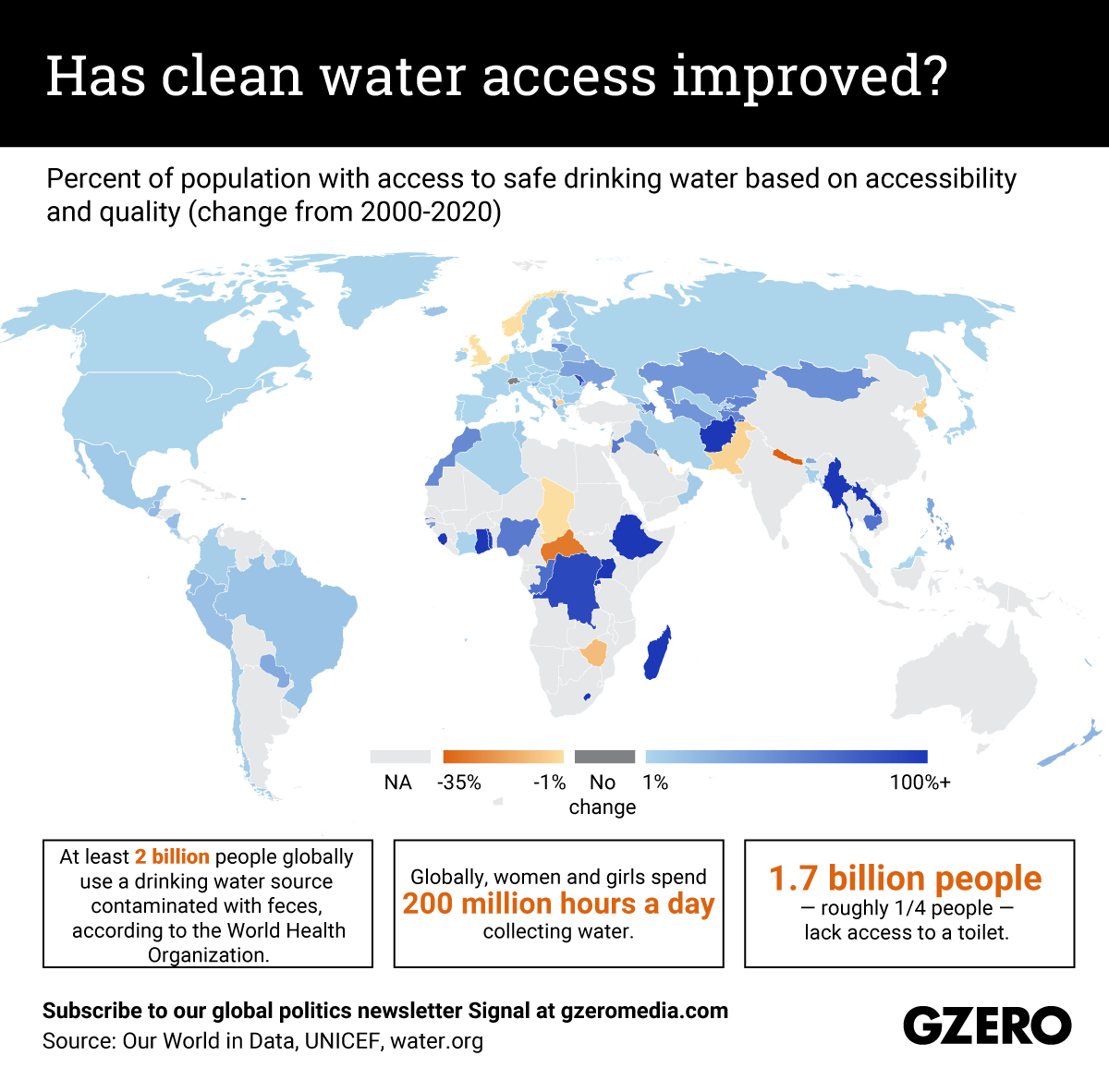May 20, 2022
In many low- and middle-income countries, availability of safe, drinkable water remains scarce. Though access has improved significantly in many places over the past two decades – by 152% in Afghanistan, for instance – the very low baseline means that still only 28% of that population has access to high quality drinking water. Meanwhile, countries like the Central African Republic, Zambia, Nepal, and Pakistan saw their access reduced over the past two decades. Here’s a snapshot of the relative change in access to safe drinking water around the world from 2000-2020.
More For You
Xi Jinping has spent three years gutting his own military leadership. Five of the seven members of the Central Military Commission – China's supreme military authority – have been purged since 2023, all of whom were handpicked by Xi himself back in 2022.
Most Popular
Sponsored posts
Five forces that shaped 2025
What's Good Wednesdays
What’s Good Wednesdays™, January 28, 2026
Walmart sponsored posts
Walmart’s commitment to US-made products
- YouTube
In this episode of GZERO Europe, Carl Bildt examines how an eventful week in Davos further strained transatlantic relations and reignited tensions over Greenland.
- YouTube
In this episode of "ask ian," Ian Bremmer breaks down the growing rift between the US and Canada, calling it “permanent damage” to one of the world’s closest alliances.
An employee works on the beverage production line to meet the Spring Festival market demand at Leyuan Health Technology (Huzhou) Co., Ltd. on January 27, 2026 in Huzhou, Zhejiang Province of China.
Photo by Wang Shucheng/VCG
For China, hitting its annual growth target is as much a political victory as an economic one. It is proof that Beijing can weather slowing global demand, a slumping housing sector, and mounting pressure from Washington.
© 2025 GZERO Media. All Rights Reserved | A Eurasia Group media company.
